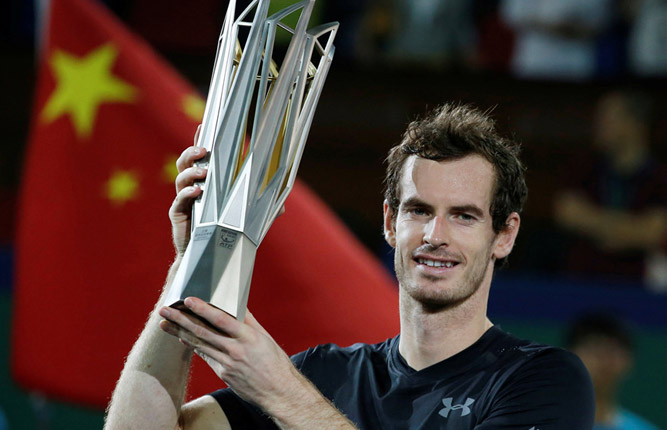Ultimate test of will and skill
By Xu Jingxi in Hefei (China Daily) Updated: 2016-10-19 07:57
Success of Hefei event underlines growth of sport across China
When Zhang Fan went to Hawaii to compete in the 1995 IRONMAN World Championship, he was the only athlete representing China.
A graduate student at the University of Michigan at the time, Zhang hung the national flag over the window the moment he arrived at his hotel, showing the world that Chinese were ready to take the challenge.
Twenty-one years later, the 52-year-old Zhang was pleased to see over 1,000 Chinese racers when he returned to his homeland to compete in last Sunday's IRONMAN 70.3 triathlon in Hefei, Anhui province.
It marked the first time the IRONMAN 70.3 series has been held in China since Dalian Wanda Group purchased World Triathlon Corporation last year. A total of 1,676 triathletes from 58 countries and regions competed in the event - including a group of amateurs aged 75-79.
"The Hefei event is special to me because I've witnessed the number of Chinese triathletes grow from zero to thousands and triathlon is now gaining mass participation in China," Zhang said.

"China has the soil for triathlon to grow fast. Wanda's strong brand promotion, the country's rapid economic growth, the rising competence of Chinese triathletes and the easy access to information such as training methods online ... these are all nutrition for triathlon's development."
Triathlon challenges both the physical and mental strength of athletes. An IRONMAN 70.3 race requires a competitor to cover a total distance of 70.3 miles (113 kilometers), consisting of a 1.2-mile swim, a 56-mile bike ride and a 13.1-mile run. That distance is doubled in an IRONMAN race.
"Triathlon is an addictive sport; once you get interested, you can't stop loving it," Zhang said.
"It helps you to discover your potential to accomplish something you've never imagined before and thus boosts your confidence.
"You need to set a clear goal for each stage and fight hard to achieve those goals with self-discipline and persistence.
"To complete a long-distance triathlon, you need to focus on the goals with the same sense of discipline and purpose that is required to achieve success in work and life."
Zhang is preparing to participate in a full-distance IRONMAN event in Arizona next month.
His love for the sport has been passed on to his two daughters who are top triathletes in the US, one at college and the other at high school.
Xie Weili, 27, who started competing in triathlon about a year ago and now works as a race reporter, is also confident of the sport's future in China.
"Young people are adventurous and love taking challenges," Xie said.
"And since triathlon is still a new sport in China, the circle of athletes is not very big. People can build close connections to the sport and the lifestyle."
Xie said there are about 15,000 athletes registered with the China Triathlon Sports Association, with around 3,000 of them actively involved in competition.
There have been more than 40 triathlons in China this year, while there were only 10 all of last year, Xie added.
But there are still obstacles to overcome before the sport gains mass mainstream participation here.
The cost of racing bikes and training is still high, said Zhang. And a triathlon is a big challenge for organizers, who require great support from the government to provide suitable road and water courses.
But Xie is convinced the sport is now well grounded in China, and its future is bright.
"Wanda's purchase of the IRONMAN triathlon series is a significant reason behind the surging number of triathlons in China because the sports industry saw the market potential after the Chinese conglomeration made the investment," Xie said.
xujingxi@chinadaily.com.cn
(China Daily 10/19/2016 page23)









